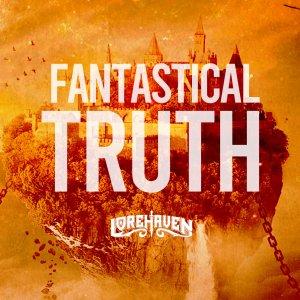Fantastical Truth

159. What If Your Genius Math Skills Got You in Trouble with the Mob? | Calculated with Nova McBee
What if you were a teenage prodigy who could use mathematics to predict the future? But finally your numbers-driven world collapsed into betrayal and kidnapping by a criminal empire? That’s the equation for Calculated and its sequels from novelist Nova McBee, who now joins today’s episode.
Introducing novelist Nova McBeeNova McBee, a Seattle native, has lived nearly half her life in the Middle East, Europe, and Asia. Calculated is currently in development to become a major motion picture. Emmy-Award winning screenwriter, Ann Peacock, best known for The Chronicles of Narnia, will adapt the novel for the screen in partnership with One Door Studios, who owns the rights and options to all of the books. Visit NovaMcBee.com or OneDoorStudios.com for more information.
1. What images and ideas led to making Calculated? 2. How have readers responded to Josephine’s tale? 3. Can you predict what’s next for this story-world? Mission update- Article: Why The Mandalorian Makes Sense in a World That Masks Creedal Religion
- Last week’s book review for Infernal Fall
- This week’s book review for Calculated
- Subscribe free to get updates and join the Guild
Thank you, AD, for this article. Yes, I draw from the deep wells of classic literature as I write my futuristic science fiction. Were there ever the good old days of literature? I doubt it. But “zero-calorie diet of postmodern writing” is well put. Everything has gone flat. Or one could say, into the void has rushed fantastical creatures, gods, and demons, like in the most ancient times.
Jay DiNitto recalls that older stories often prove more daring:With older books you avoid a lot of the ubiquitous cinematic tropes–usually. There was less of a set formula back then for characters, so writers could afford to get away with doing things that are odd to modern sensibilities.
Speaking of risks, Jenny Chasteen questions deconstructionism:I know I’m late to this episode, but I wanted to thank you for #153, “When Can Deconstructionism Threaten Christian Fiction?”
I found the definition of postmodernism really thought-provoking, and I’d never fully connected that concept in my mind with the rising popularity of “deconstructing.”
As I listened to the episode, I started asking hard questions of the stories I write. I think of them as stories that support truth and portray a world that has “foundations.” But I realized that I’ve been subconsciously “deconstructing” some tropes and sometimes trying to make readers feel like they’re “in on the joke.”
Do you think that can be done in a way that’s actually constructive as long as I’m still showing a world where good and evil have weight? How can I show characters questioning and changing what they believe without falling for the deconstruction fad?
Next on Fantastical TruthWe’ll choose from one of two or more topics: (1) finding stories homeschool readers want, (2) how great stories reconstruct genres and heroes, (3) something else!






 Visit Podcast Website
Visit Podcast Website RSS Podcast Feed
RSS Podcast Feed Subscribe
Subscribe
 Add to MyCast
Add to MyCast